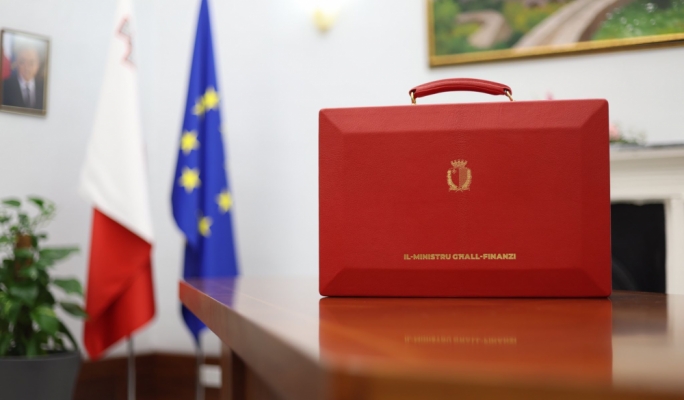Malta’s 2025 Budget introduces new fiscal, social, and environmental measures aimed at addressing immediate and long-term needs. Zampa Debattista, a local leading professional advisory firm, offers a high-level overview of these measures, capturing the broad impact expected across the economy and society.
Fiscal measures: Enhancing disposable income and extending incentives
In the view of Markita Falzon, Zampa Debattista’s Tax Leader, “the main highlight of this year’s budget was the increase in tax-free brackets for all individuals in employment, benefiting from a reduction in tax of a maximum of €675 per year.”
Indeed, this has been touted by government as its flagship measure and is intended to partially counter inflationary pressures that have been felt across the island in 2024.
This increase, she explains, “boosts the individuals’ disposable income, stimulating spending” while also easing financial pressure on low to middle-income earners.
However, Ms Falzon cautions that “the government will potentially experience a shortfall in revenue, which might require corresponding adjustments compromising the overall benefit of such incentive.”
So how, exactly, are tax-bands widening?
The tax-free bracket for the single tax computation has increased from €9,100 to €12,000, for the married tax computation from €12,700 to €15,000 and for those using the parent tax computation from €10,500 to €13,000.
This increase in the tax-free bracket will result in an overall tax benefit in hands of the taxpayer ranging from €345 to €675, depending on which tax computation one uses and the corresponding chargeable income.
Other further fiscal measures included in next year’s budget of note include an incentive geared towards easing the financial burden on parents who send their children to private schools.
Indeed, Finance Minister Clyde Caruana announced an increase in the tax deductions applicable on school fees like so:
- From €1,600 to €3,500 for children attending kindergarten.
- From €1,900 to €4,600 for children attending primary school.
- From €2,600 to €6,500 for children attending secondary school.
Further, a number of fiscal incentives have been extended from previous budgets, which include:
- The reduced stamp duty rate for first- and second-time buyers as well as the €10,000 grant for first-time buyers.
- A number of fiscal incentives on the transfers of properties situated in UCAs or which have been vacant for more than seven years.
- Additionally, the reduced stamp duty rate of 1.5% applicable on the donation of shares in a family business has also been extended for another year. This aims to incentivise family business to think ahead when it comes to succession.
- Annual tax refunds will also be retained for another year.
Lastly, on the international tax landscape, specifically with respect to Pillar 2, the global minimum effective tax rate of 15%, Malta has opted to apply the derogation for a further year, deferring its implementation to up to 2029. In the meantime, the Maltese government is in discussions with the European Commission with respect to the introduction of qualified refundable tax credits and tax grants to ensure that Malta retains its competitive edge when pillar 2 is introduced.
Social measures: Family-oriented initiatives and pension support
Zampa Debattista’s Senior Accounting Team Leader, Lisa Apap, noted a positive shift in social measures, emphasising that “this year, the Cost of Living Adjustment (COLA) was lower than last year’s figure, reflecting the declining rate of inflation.” Ms Apap highlighted the government’s “significant push for family-oriented measures,” which include “an increase in children’s allowances, the introduction of IVF Leave, and the extension of paternity leave to self-employed fathers.”
In 2025, Malta’s Cost of Living Adjustment (COLA) will be set at €5.25 per week, while minimum wage earners will see an increase of €8.24 per week, which includes the COLA adjustment, keeping the minimum wage tax-free.
Asked to highlight social measures included in the budget of note, Ms Apap begins by focusing on family policies where government is expanding support: children’s allowances will rise by €250 per child, and families with three or more children will receive a one-time grant of €1,500 at the birth or adoption of each new child. Previously, these grants were €500 for a first child and €1,000 for each additional child. The aim is to address Malta’s low birth rate and offer extra help to growing families.
Parental leave policies are also evolving, she points out, with the 10-day paternal leave entitlement now extended to self-employed fathers. Additionally, employed and self-employed people undergoing IVF treatments can take 100 extra hours of leave per cycle, divided into 60 hours for the mother and 40 for the partner.
In the realm of pensions, retirees can expect a weekly increase of €8, inclusive of COLA, while employers must offer new and transitioning employees the option of joining an occupational pension plan. This measure supplements Malta’s first-pillar pensions, intended to strengthen long-term sustainability amid an aging population. Further incentives will allow pensioners who choose to work past retirement age to receive a tax exemption on 80% of their income, up from 60% last year, with a full exemption target by 2026.
Additionally, for those born from 1976 onwards, the required years of contributions for full pension eligibility will rise to 42 years. However, the retirement age itself remains unchanged, maintaining stability for future pensioners.
Environmental measures: Commitment to carbon neutrality
Malta’s commitment to carbon neutrality remains a focal point in this year’s budget, with ongoing efforts to support renewable energy. Mattia Dalli Bellia, ESG Researcher at Zampa Debattista, remarked that “this year’s budget reinforced the government’s commitment to a carbon neutral economy by 2050.” To that end, he noted, “with ongoing incentives for renewable energy installations and the launch of 19 new projects through Project Green in 2025, significant strides are being made toward a more sustainable future.”
These incentives primarily support the installation of PV panels, heat pump water heaters, and solar water heaters, highlighting Malta’s focus on practical, accessible renewable solutions. Another environmental measure that stands out is the government’s commitment to a second Wasteserv facility to be built to separate bulky refuse that arrives at the plant in a mixed state.
However, the budget’s reduction of the grant for electric vehicle purchases from €11,000 to €8,000 could hinder widespread adoption. “This raises concerns about encouraging wider adoption,” Mr Dalli Bellia commented, underscoring the potential need for additional incentives to achieve Malta’s sustainability targets.
Enemed says Iran war not expected to disrupt Malta’s fuel supply
Enemed’s suppliers source fuels from the Mediterranean, normally from European countries
The Remarkable Collective welcomes Joseph Bonanno
Strengthening strategy and compliance with seasoned leadership
Malta-flagged ship hit by missile in Strait of Hormuz en route to Saudi Arabia
The Safeen Prestige was hit by a missile off the coast of Oman






